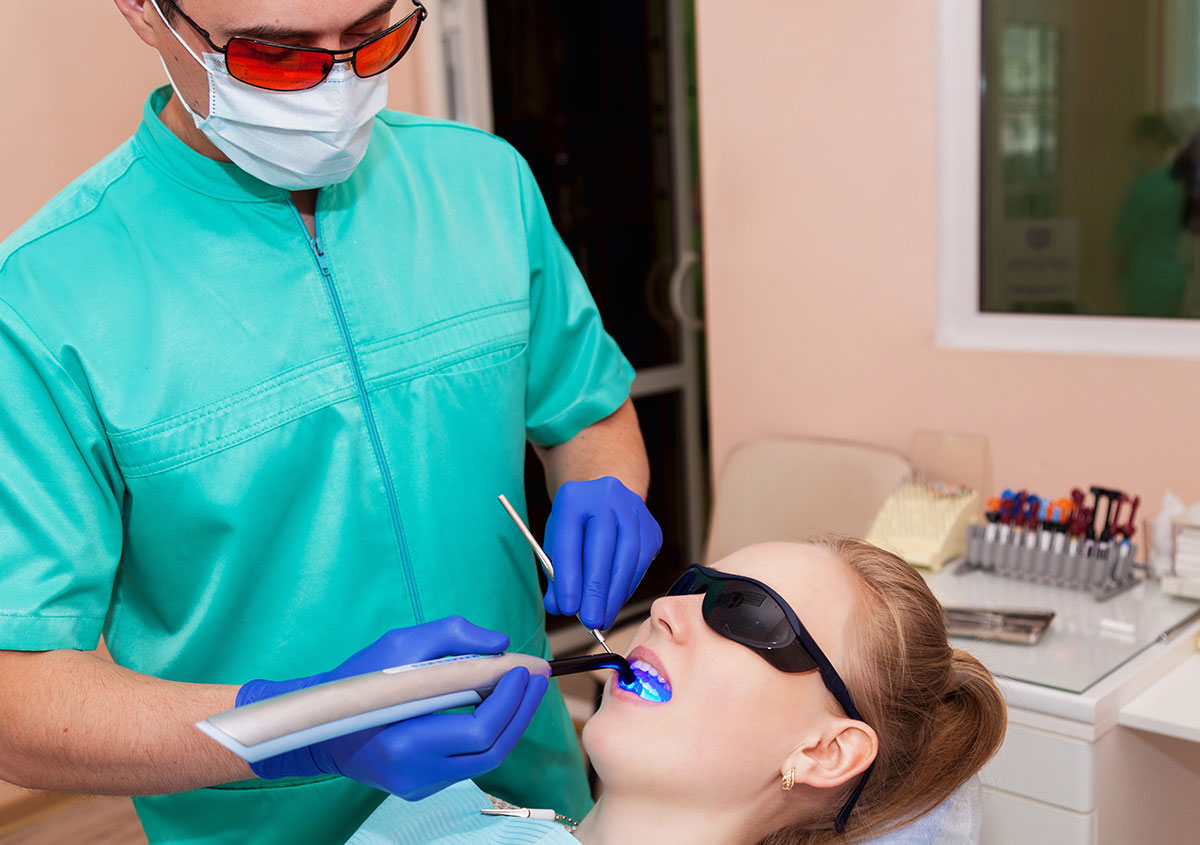Top Benefits of Sedation Dentistry
Does the thought of having dental treatment make you nervous? You’re certainly not alone. Studies show about 15 percent of adults in the U.S. avoid seeing the dentist because of fear or anxiety surrounding potential treatments – that’s about 30 million people who put off dental care, significantly increasing their risks for serious infection, tooth loss and even oral cancer. In fact, the fear of visiting the dentist is so pervasive, it’s earned its own medical term: dental phobia.

For most people, the fear of seeing the dentist is born out of painful memories of earlier treatments, but there are plenty of other causes of dental phobia, and they all have one thing in common: they prevent people from getting the critical care they need to avoid serious oral health issues.
Sedation Dentistry to the Rescue
Fortunately, the past decade has seen a significant increase in the use of safe, effective dental sedation techniques aimed at helping patients get the care they need without pain or anxiety. Sedation works in different ways depending on the method used, acting on the brain and central nervous system to reduce fear and anxiety, induce feelings of deep relaxation, or completely “block out” any memory of treatment. The most common types of sedation include:
- Nitrous oxide (also called “laughing gas”) which is breathed in through the nose, resulting in feelings of euphoria and relaxation for patients requiring mild sedation
- Sedatives in pill form taken prior to treatment to produce deep relaxation and reduce anxiety
- Intravenous sedation which uses special solutions of sedatives delivered directly to the bloodstream via an IV drip
For patients with significant levels of anxiety (as well as those facing more extensive or invasive treatments), IV sedation can be especially beneficial in eliminating anxiety and pain during treatment, producing an amnesic effect so patient remember little or nothing of their treatment. Until recently, the use of IV sedation was restricted to extensive oral surgeries that required patients to be “put out” in order to perform procedures without pain.
But thanks to advances in training, techniques and medications, IV sedation is being safely and effectively used in patients undergoing far less extensive treatments, helping men and women of all ages return to the dentist’s chair with greater confidence and far fewer worries or fears.
Top Benefits of Sedation Dentistry
Certainly, reducing or eliminating fear and anxiety is perhaps the most significant benefit of sedation dentistry. After all, when those roadblocks are eliminated, what’s to keep even the most nervous patient from getting the care they need to enjoy better oral health and reduce the risks of tooth decay, gum disease, infection and tooth loss? Still, there are other benefits as well:
- Sedation can be especially helpful in patients with sensitive gag reflexes, helping them to relax and even doze during care without succumbing to the undeniable urge to choke and sputter. Gagging typically involves both psychological and physiological responses, and mild sedatives like nitrous oxide or oral sedatives can be effective in addressing both issues for greater comfort during treatments like dental impressions, fillings and even x-rays.
- Many dental procedures can be performed without pain using local anesthetics, but the fear of needles can still make many patients balk at treatment. Mild sedatives can be used in combination with local injected anesthetics to reduce the fear of needles and also to numb pain sensations associated with injections.
- Sedatives can also be very effective in helping patients cope with the sounds, smells and sights of the dentist office, eliciting overall feelings of calmness and well-being that act to “short circuit” the fear and anxiety responses associated with drill noises, bright lights or strong antiseptic odors. Patients with general anxiety disorders or anxiety issues like post-traumatic stress disorder are at special risk for these types of “triggering” stimuli that can cause a whole cascade of fear-based reactions.
- Sedation enables the dentist to perform multiple procedures during one office visit, which means even those patients with extensive care needs can receive the treatments they need in far fewer visits, reducing costs of care as well as anxiety.
- And finally, the amnesic state associated with IV sedation and some oral sedatives means most patients have little or, very often, no memory of their treatment, dozing throughout the procedure and waking only once their treatment is complete. This single element can be especially appealing to patients who’ve had traumatic dental experiences in the past that have kept them from seeking even the most basic preventive care like routine cleanings.
Sedation can be used in children and teens as well as adults, and in younger patients, judicious use of sedation can prevent dental anxiety from ever occurring, which means they’ll be far more likely to continue good oral care habits throughout adulthood, significantly reducing their risks for serious dental issues and tooth loss.
Choice of Provider Is Key
Not every dentist is skilled in sedation techniques; in fact, despite the wealth of studies that show dental phobia is a very real concern for patients, many dentists still offer little in the way of intervention for anxiety-ridden patients, relying on patients to develop the skills and mindset they need to “get over” their fears on their own.
At Briglia Dental Group, we know dental phobia is real. Our compassionate and empathetic staff is trained in state-of-the-art sedation methods aimed at making dental care more comfortable and less traumatic for every patient. During office visits, patients are encouraged to discuss their concerns openly without fear of being judged or labeled as being difficult or “overanxious.”
Prior to treatment, we’ll review sedation options, making recommendations based on each patient’s unique circumstances so they can feel comfortable and relaxed throughout their treatment. Ultimately, our goal is to help patients from throughout the West Chester, PA, area feel confident about their oral health, providing them with the options they need to make smart, empowered, educated decisions so they can enjoy better oral health at every stage of life.
To learn more about the sedation options we offer, call Briglia Dental Group today at (610) 615 0160 and schedule a consultation visit.
Share this Article
Back to Blog Page






